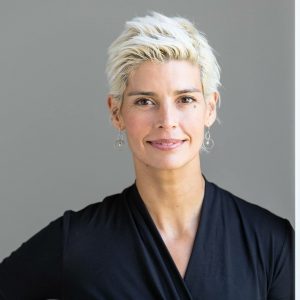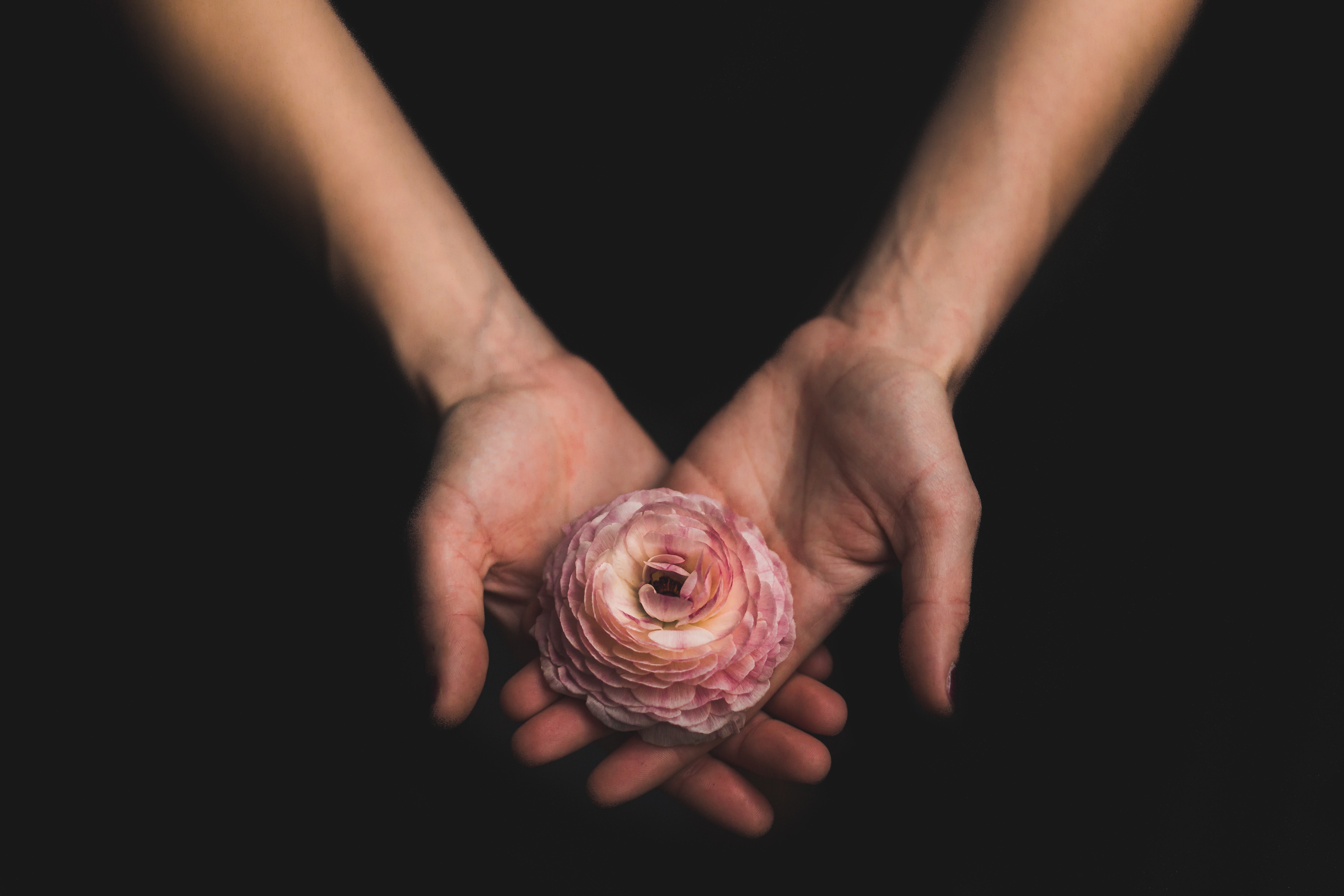Former model turned zen nun and integral coach
Maria Bailey
Maria Bailey is a Venezuelan former model turned ordained Zen nun who supports others in living passionately and loving fiercely. She will take a workshop about Feminine Shadow and Women in Leadership at IEC2018.
These are exciting times to be a woman! There’s definitely a revolution happening, women taking a stand in many directions. This journey seems like a long uphill road and we can see women in all kinds of contexts looking to each other for support and power in their gathering numbers to change the balance in a very patriarchal game.
Maria want this revolution! These movements get her so excited and hopeful… until she remembers how vicious or cruel some women can be with other women.
Feminine Shadow work is an opportunity to come together with other women in a playful, daring and ultimately impactful way, to gain new understandings of obscure dynamics and ways to work through them.
We are having all these very important conversations but rarely do we speak of the #1 nemesis of women: Other Women!
You may agree or not but in Maria’s experience with her clients or friends that are women, they all seem to know exactly what she’s talking about.
Her story started when she was very young in Venezuela and may sound familiar to you: her best friends stopped talking to her for a YEAR by creating a coalition that left her out of the group. And as a result of that first instance of feminine viciousness and many others that followed, she became suspicious of women because it seemed to her that friendship with other women usually came with costly conditions.
We may think that those days are over now that we are grown women and have out grown those dynamics. But ask yourself: How are your relationships with the women in your life? Is there an unspoken undercurrent where power and relationships are being negotiated among the women you know at work or in your life?
She calls these obscure dynamics Feminine Shadow. She heard Diane Hamilton give it this name three years ago in the Integral Facilitator Certificate Program. It was a turning point for her to give a name to these power plays and games she has sensed and participated in since she was a little girl.
Feminine Shadow, as the name points to, is the shadow side or unconscious of the feminine aspect of ourselves. For women, is it the part of us that we have a hard time accepting of ourselves, so it plays out in unconscious ways.
One way that she’s been able to find a pattern to these dynamics is by looking at archetypes. She’s narrowed it down to 4 but you may find that you connect with others.
1. For example, we may play the Victim or 2. the Martyr to gain some sympathy. 3. Or maybe we see ourselves as a powerful Heroine that saves the day. 4. The last archetype that she sees showing up is the Witch.
She’s particularly interested in this last one because no one wants to identify with the Witch, so there seems a lot of ground to explore here.
What she has seen that all these archetypes have in common is that they are just roles that inform the ways how most women wield power in the dynamics of relationship.
The Victim might disconnect and project blame, the Martyr may resist engagement and project shame, the Heroine can inspire but be too much “above it all,” and the Witch may be confronting or use her sensuality to get her way but may create confusion and strife. No matter the woman, it seems we are all familiar to a certain level of controlling our environment in whatever way we can to have some influence in our relationships.
To think that one archetype is better or worse than the other is a mistake. At some point or another we all step into one of these roles, and it is when we push any part of us away that we relegate this energy of power into the shadows of the unconscious.
But what if instead of hiding and manipulating our way through relationships we became more aware and straightforward with our intentions? What if we became more responsible onto ourselves and revealing to other women?
As we create more awareness and become more available to these parts of ourselves that we normally project onto other women, we can discover new possibilities to relate more honestly with other women, creating teams and environments that are more creative, collaborative and supportive to the battles we need to affront together in our times, be it for a women’s march or speaking up for the #metoo campaign.
Why is changing this dynamic relevant? Maria has a familiar experience that whenever she step forward to take the lead, women around her do all kinds of covert or overt things to level the field to the point where we all have equal power. But how are we to make a change in the world and our culture in this way if we are constantly bringing each other down?
Let’s stop pretending we have each other’s back unconditionally. Let’s reveal ourselves and learn what being for each other really means – without having to level the ground until no woman has any power.
We make Heroines like Oprah Winfrey, Witches like Hilary Clinton, Martyrs like Malala Yousafzai or Victims like Melania Trump. These are great women who some of us follow for one reason or another. But is it me or does it seem that we just see and accept the most obvious part of them in order to follow?
What would it take for a woman to take a stand in a powerful way – with all her parts – and for other women to celebrate her?
The truth is that to truly do the work we need to do as women in leadership and stand in our own journey we need to learn to inhabit all of these parts or archetypes and not get too identified in any one of them. The feminine is fluid and her wisdom is somatic, intuitive and relational.
You can begin by leaning in and practicing how to reveal more of yourself with those you trust. Reminding yourself how good it feels when you’re welcomed, accepted and in relationship. Then perhaps from this place of strength you can risk a little and turn toward those archetypal parts inside you – and the archetypes being revealed in other women – that make you feel uncomfortable. See if you can lean into this other side that is different from you – where you might get hurt or you might be rejected. Investigate your stories and assumptions and the archetypal roles you play in the power dynamics of relationships.
See them. Name them. Own them. Liberate yourself from being controlled by them.
What would it take to be curious instead of looking for what would confirm our fears? What would it take to stay a little longer with yourself? She envisions a world where women have access to more of themselves, becoming more personally responsible. Relationships where women collaborate without having to exile parts of themselves. A paradigm where men are allies and not heirs of patriarchal power and women our partners and not a threat to a limited source of power. Where women don’t need to become more powerful than men or more authentic than other women because they are powerful and authentic already. Her Zen teacher Roshi Sanchi Reta says, “When you’re hungry, become bread.” What kind of story is your life? Which archetypes do you play and which ones do you long to inhabit? What are you hungry for and what would you need to become to feed the world with your bread?
About Maria

Maria Bailey is a certified, trained and gifted Integral Coach and Integral Facilitator for individuals, groups and teams. She uniquely challenges clients to clarify integrity, discover larger purposes and generate creative actions to effectively move forward in both personal and professional contexts. She is a devoted self-directed learner, a student of leading thinkers in adult development and group dynamics and passionate about facilitating learning circles for women leaders.
With Love, The IEC team
https://www.integraleuropeanconference.com

